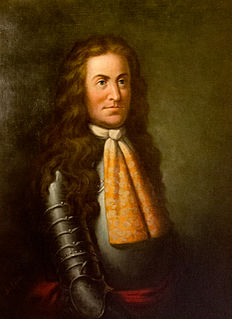Related Research Articles

The Channel Islands are an archipelago in the English Channel, off the French coast of Normandy. They include two Crown Dependencies: the Bailiwick of Jersey, which is the largest of the islands; and the Bailiwick of Guernsey, consisting of Guernsey, Alderney, Sark, Herm and some smaller islands. They are considered the remnants of the Duchy of Normandy and, although they are not part of the United Kingdom, the UK is responsible for the defence and international relations of the islands. The Crown dependencies are not members of the Commonwealth of Nations, nor have they ever been in the European Union. They have a total population of about 170,499, and the bailiwicks' capitals, Saint Helier and Saint Peter Port, have populations of 33,500 and 18,207, respectively.

Alderney is the northernmost of the inhabited Channel Islands. It is part of the Bailiwick of Guernsey, a British Crown dependency. It is 3 miles (5 km) long and 1+1⁄2 miles (2.4 km) wide.

Sir Edmund Andros was an English colonial administrator in British America. He was the governor of the Dominion of New England during most of its three-year existence. At other times, Andros served as governor of the provinces of New York, East and West Jersey, Virginia, and Maryland.

The Bailiwick of Guernsey is one of three Crown Dependencies.

Lieutenant-General Francis Nicholson was a British Army general and colonial official who served as the Governor of South Carolina from 1721 to 1725. He previously was the Governor of Nova Scotia from 1712 to 1715, the Governor of Virginia from 1698 to 1705, the Governor of Maryland from 1694 to 1698, the Lieutenant Governor of Virginia from 1690 to 1692, and the Lieutenant Governor of the Dominion of New England from 1688 to 1689.
Philip Carteret; French: Philippe de Carteret; (1639–1682) was the first Governor of New Jersey, from 1665 to 1673 and governor of East New Jersey from 1674 to 1682.

The Lieutenant Governor of Guernsey is the representative of the British monarch in the Bailiwick of Guernsey, a Crown dependency of the British Crown. The role of the Lieutenant Governor is to act as the de facto head of state in Guernsey and as liaison between the governments of Guernsey and the United Kingdom. The holder of this office is also ex officio a member of the States of Guernsey but may not vote and, by convention, speaks in the Chamber only on appointment and on departure from post. The duties are primarily diplomatic and ceremonial. He has the authority to appointment two members of the board of governors of Elizabeth College and the Priaulx Library.
Rev. Thomas Le Mesurier was a British lawyer, cleric and polemicist.
John Le Mesurier (1781–1843) was a soldier and governor of Alderney. He resigned his patent to the crown in 1825 and was the last hereditary Governor of Alderney.

The Leader of Alderney is the civil leader of Alderney. Alderney is a dependency of the Bailiwick of Guernsey. Its leader has traditionally been appointed by the British Crown and has been known by various titles including Lord of Alderney, Governor of Alderney, and the current President of the States of Alderney. The President of the States of Alderney is directly elected every four years and there is no constitutional limit to the number of terms served. The current president, William Tate has held the post since 2019.
The Judge of Alderney is the senior judicial officer in Alderney, ranking above the six Jurats. The holder was until 1949 entitled to a seat in the States of Alderney, and between 1825 and 1949 was Leader of Alderney.
Edward Antill was an English-born American merchant and attorney prominent in the early history of Province of New York and the Province of New Jersey during the colonial period. He was the father of colonial politician and plantation owner Edward Antill (1701-1770) and grandfather of Lt. Colonel Edward Antill (1742-1789) who served as an officer in the Continental Army notably at the Battle of Quebec (1775).
Between 1642 and 1651 the Channel Islands were involved in an eleven-year-long, wide-scale armed conflict known as the English Civil War, between the Parliamentarians and Royalists over, principally, the manner of England's government and the amount of power the monarch should be able to wield.
References
- ↑ Ben Cahoon. "Alderney". Worldstatesmen.org. Retrieved 15 February 2014.
- ↑ "General John Le Mesurier (1781–1843), Last Hereditary Governor of Alderney". Art UK . Retrieved 15 February 2014.
- 1 2 3 "Brief History". Island Life. Retrieved 15 February 2014.
- ↑ . Dictionary of National Biography . London: Smith, Elder & Co. 1885–1900.
- ↑ "The Project Gutenberg eBook of A Memoir of Sir Edmund Andros, Knt., by William Henry Whitmore". Project Gutenberg. 17 October 2011. Retrieved 15 February 2014.